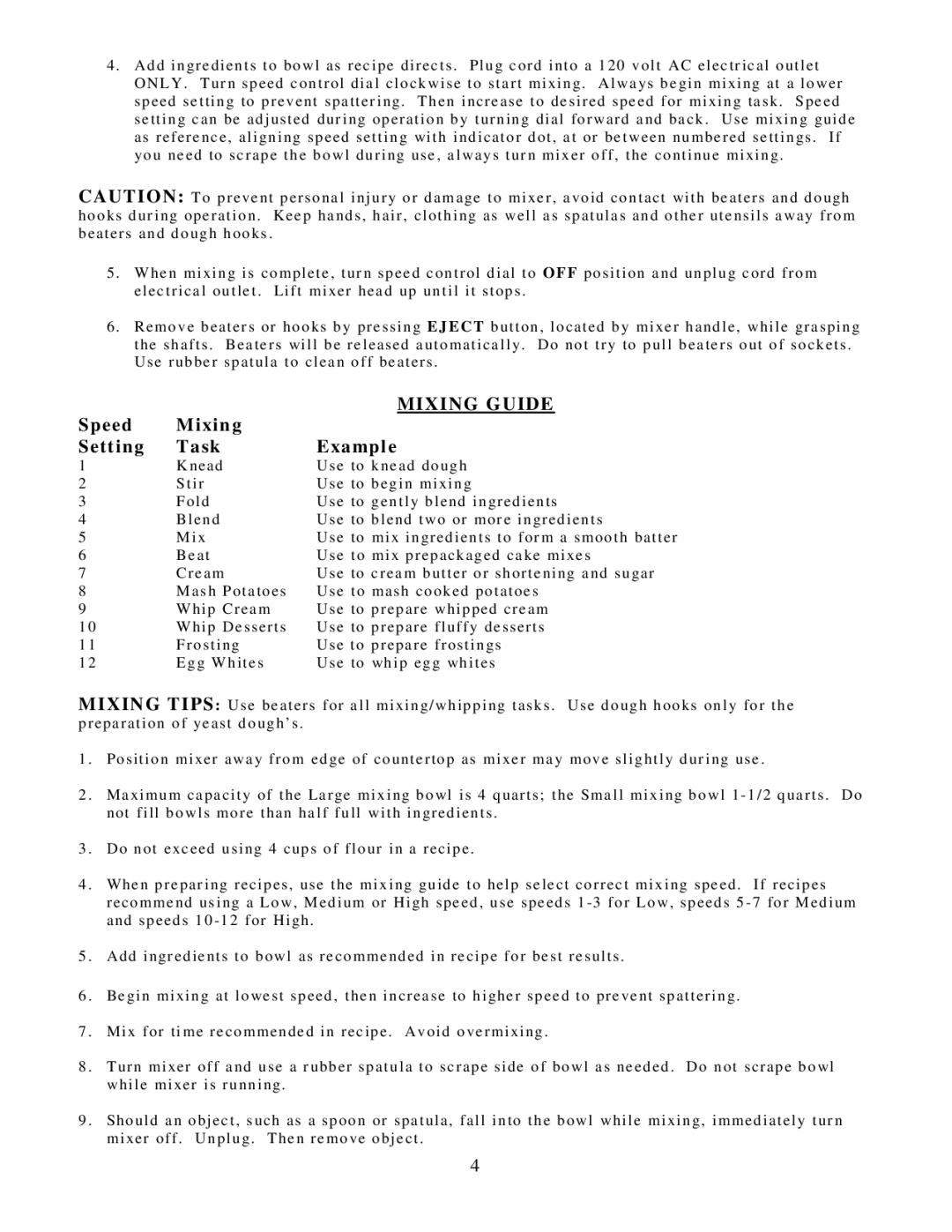Mixer specifications
The West Bend Mixer is an essential tool for both amateur cooks and professional chefs looking to elevate their culinary creations. Renowned for its robust performance and innovative features, the West Bend Mixer is designed to streamline the mixing process, ensuring consistent results every time.One of the standout features of the West Bend Mixer is its powerful motor. This appliance comes equipped with a high-efficiency motor that provides ample power for even the most demanding tasks, such as kneading dough or blending thick batter. Its versatility allows it to handle a wide range of mixing needs, from whipping egg whites to mixing heavy cookie dough.
The design of the West Bend Mixer is engineered for ease of use and convenience. It features multiple speed settings, allowing users to adjust the mixing intensity according to the specific requirements of their recipes. This adaptability is invaluable when transitioning from slow mixing to high-speed whipping. Additionally, the intuitive control panel is user-friendly, making it accessible for cooks of all skill levels.
Another notable characteristic of the West Bend Mixer is its durable construction. Made with high-quality materials, the mixer is built to withstand the rigors of daily use. The bowl is often designed with a non-slip base to ensure stability during mixing, while the ergonomic handle allows for easy maneuvering. Moreover, many models come with a tilting head, which simplifies the addition of ingredients and facilitates cleaning.
In terms of technology, the West Bend Mixer incorporates advanced mixing technology that promotes thorough blending. The unique mixing action allows for a complete amalgamation of ingredients, ensuring that there are no pockets of unmixed items. Some models also include a splash guard to prevent messes, keeping your kitchen clean while you work.
The versatility of the West Bend Mixer is further enhanced by the availability of various attachments. Many mixers come with standard attachments such as beaters, dough hooks, and whisks, allowing users to tackle various culinary tasks. Optional attachments like food processors and spiralizers can also transform the mixer into a multifunctional kitchen powerhouse.
In summary, the West Bend Mixer combines power, versatility, and user-friendly design, making it an invaluable addition to any kitchen. Its robust motor, multiple speed settings, and durable construction, paired with advanced mixing technologies, ensure that it can handle a wide variety of tasks efficiently. For those who appreciate quality and performance in their kitchen appliances, the West Bend Mixer stands out as a reliable choice, ready to assist in crafting delicious dishes with ease.
